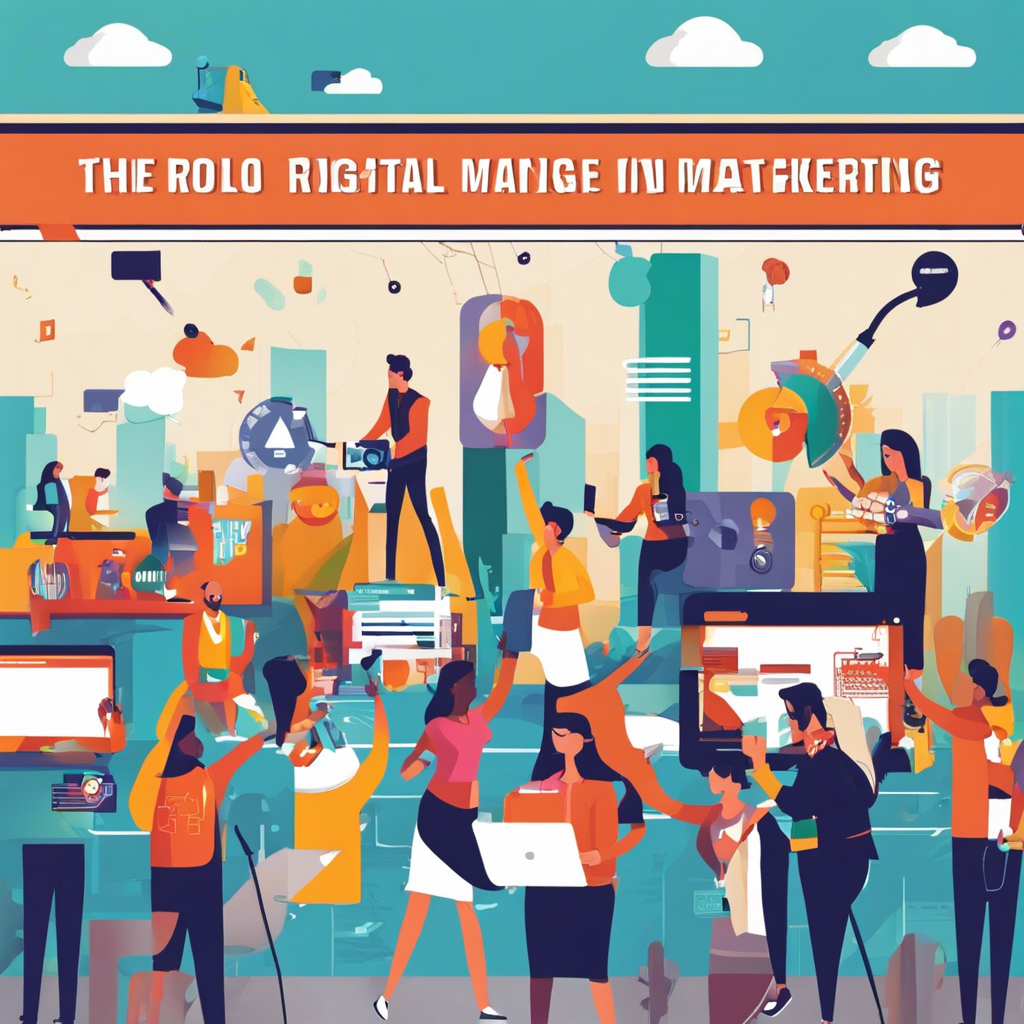The entertainment sector has undergone a remarkable transformation in the digital age, and at the heart of this evolution is the power of digital marketing. In today’s fast-paced, interconnected world, entertainment companies are leveraging digital platforms to reach and engage their audiences like never before. This article delves into the role of digital marketing in the entertainment sector, exploring its strategies, impact, and the exciting opportunities it presents for both industry players and consumers.
The Rise of Digital Marketing in Entertainment
The entertainment industry has always been about capturing the attention of audiences, but with the advent of the internet and social media, the rules of engagement have changed. Digital marketing has emerged as a powerful tool for entertainment companies to directly connect with their target audiences, promote their content, and build brand loyalty.
In the past, traditional marketing methods such as print advertisements, billboards, and television commercials were the primary means of promoting entertainment offerings. However, with the rise of digital platforms, these strategies have evolved. Digital marketing now offers a more personalized, data-driven approach, allowing entertainment companies to understand their audiences’ preferences and behaviors better.
For example, Disney’s successful launch of Disney+ in 2019 showcased the power of digital marketing in the entertainment sector. The company utilized social media marketing, influencer partnerships, and targeted online advertisements to create massive anticipation for the streaming platform’s debut. This strategy not only resulted in a strong subscriber base but also generated significant buzz and engagement among fans.
Strategies and Channels
Content Marketing and Influencer Partnerships
Content marketing has become a cornerstone of digital marketing in the entertainment sector. It involves creating and sharing valuable, relevant content to attract and retain a clearly defined audience. Entertainment companies produce behind-the-scenes footage, exclusive interviews, or even spin-off content to engage fans and keep them invested in the brand.
Influencer marketing has also gained prominence. Collaborating with social media influencers or industry experts allows entertainment brands to tap into existing communities and expand their reach. For instance, Netflix’s partnership with popular YouTubers for show promotions and reviews has proven to be an effective strategy, as it leverages the trust and influence these creators have built with their audiences.
Social Media and Community Building
Social media platforms have become indispensable for entertainment marketers. These channels enable them to engage directly with their audience, foster a sense of community, and obtain valuable feedback. By creating engaging posts, sharing exclusive content, and responding to fan inquiries, entertainment brands can build strong relationships with their followers.
Data-Driven Insights
Digital marketing provides entertainment companies with access to vast amounts of data about their audiences. Through analytics tools, marketers can track user behavior, preferences, and demographics, allowing them to make informed decisions about content, marketing strategies, and even production choices. This data-driven approach helps entertainment businesses stay ahead of the curve and deliver content that resonates with their target audiences.
Interactive Marketing
Interactive marketing campaigns are another exciting development in the digital marketing landscape. These campaigns encourage audience participation and engagement through polls, quizzes, contests, and other interactive content. By involving the audience in the storytelling process, entertainment brands create a sense of ownership and loyalty among fans.
Challenges and Opportunities
Balancing Act: Creativity and Data-Driven Decisions
One of the biggest challenges for entertainment marketers is finding the right balance between creativity and data-driven decisions. While data provides valuable insights, it’s essential not to lose sight of the creative spark that makes entertainment so captivating. Successful digital marketing campaigns in this sector often blend data analysis with creative storytelling, ensuring that the content remains authentic and engaging.
Addressing Piracy and Content Protection
Digital marketing has been instrumental in addressing the issue of piracy and content protection. Entertainment companies have used digital platforms to offer legitimate access to their content, making it readily available and affordable for audiences worldwide. This shift in strategy has helped steer consumers away from illegal downloads and streaming sites, fostering a healthier entertainment ecosystem.
Leveraging Technology and Innovation
The entertainment industry is constantly evolving, and digital marketing plays a pivotal role in keeping up with technological advancements. From virtual and augmented reality experiences to interactive content, entertainment marketers are pushing the boundaries of what’s possible. These innovations not only enhance the consumer experience but also provide marketers with new avenues for promoting and distributing content.
Related Questions
How has digital marketing influenced the success of new releases in the entertainment industry?
Digital marketing has been instrumental in the success of new releases by creating buzz and anticipation among audiences. Effective digital campaigns can generate hype, drive pre-release engagement, and encourage word-of-mouth promotion, all of which contribute to a successful launch.
What impact has digital marketing had on audience engagement and loyalty in the entertainment sector?
Digital marketing has transformed how entertainment companies interact with their audiences, fostering a sense of community and loyalty. Through social media engagement, exclusive content, and interactive campaigns, entertainment brands have created meaningful connections with their fans, resulting in increased engagement and brand loyalty.
How do entertainment companies use digital marketing to analyze and understand their target audiences better?
Digital marketing provides entertainment companies with valuable data and insights into their target audiences. By analyzing user behavior, preferences, and demographics through analytics tools, marketers can tailor their content and marketing strategies to better suit their audiences, ultimately improving the overall consumer experience.
Conclusion
Digital marketing has undoubtedly revolutionized the entertainment sector, providing new avenues for promotion, audience engagement, and data-driven decision-making. By embracing digital platforms and technologies, entertainment companies can create captivating experiences, build strong communities, and maintain relevance in an ever-evolving industry. As the entertainment landscape continues to evolve, digital marketing will play a pivotal role in shaping the future of how content is created, distributed, and consumed.
## External Links:
1. [The Evolution of Marketing in the Entertainment Industry](https://www.forbes.com/sites/forbesagencycouncil/2019/04/03/the-evolution-of-marketing-in-the-entertainment-industry/)
2. [How Social Media is Changing the Entertainment Industry](https://www.inc.com/jeremy-goldman/how-social-media-is-changing-the-entertainment-industry.html)
3. [The Future of Entertainment Marketing](https://www.entrepreneur.com/article/349850)
